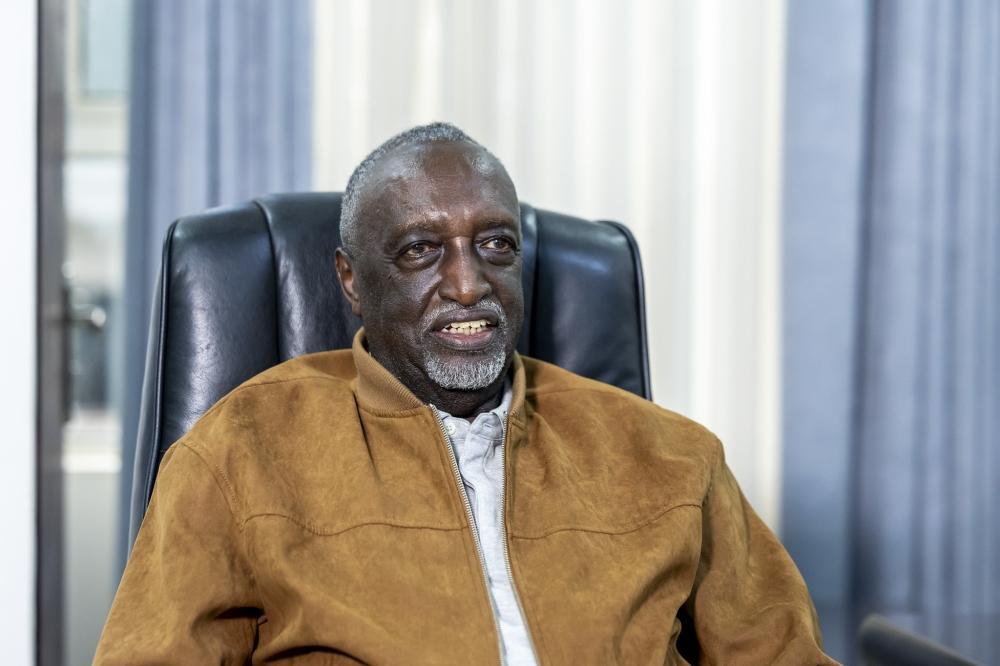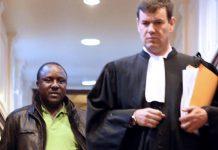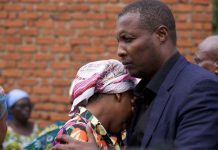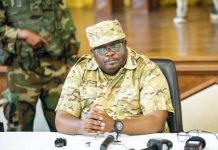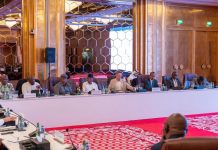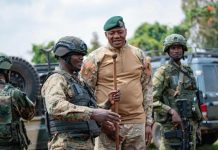Africa-Press – Rwanda. Veteran politician Tito Rutaremara has criticised Congolese President Félix Tshisekedi, accusing him of fuelling the ongoing crisis in the east of his country and called for international sanctions against him.
Rutaremara, in a post on X, argued that Tshisekedi’s actions have destabilised DR Congo and the Great Lakes region, while the international community has unjustly targeted others instead.
‘An unjust world’
“In this world, there are those who are unjustly protected for no reason, while others are punished for no reason,” Rutaremara said.
He asserted that Tshisekedi has evaded accountability despite his role in worsening the crisis in eastern DR Congo. According to Rutaremara, Tshisekedi has twice assumed power in DR Congo without being genuinely elected by the Congolese people.
He accused Tshisekedi of deceiving the Congolese public by promising economic reforms and improved governance, only to enrich himself.
He also claimed that Tshisekedi has used state resources to manipulate international media, politicians, and NGOs into portraying Rwanda and the AFC/M23 rebel group as the villains.
The AFC/M23 rebellion which has, in the past few months, seized swathes of territory and integrated into its ranks hundreds of government soldiers who surrendered after repulsing the forces of a vast government coalition. The rebel movement is fighting for governance that supports basic human rights, secures all Congolese citizens, and addresses the root causes of conflict in lawless DR Congo.
Rutaremara said that Tshisekedi signs agreements but never honours them. He also condemned the Congolese leader for rejecting diplomatic talks that the global community has encouraged and for openly threatening Rwanda with invasion.
Tshisekedi is committing atrocities against Kinyarwanda-speaking Congolese, Rutaremara said, comparing the situation to similar cases in the past where the international community intervened to protect persecuted minorities, such as Kosovo in the late 1990s.
Rwanda not in DR Congo
Rutaremara dismissed allegations that Rwanda is militarily involved in DR Congo, emphasising that the AFC/M23 rebel group operates independently.
He challenged the people making the accusations to provide concrete evidence.
“If Rwanda were in DR Congo, there would be valid reasons. One, there are Congolese who speak Kinyarwanda and are being killed by Félix Tshisekedi. Two, history has shown that when genocide occurs, the world has a responsibility to intervene.”
Rwanda’s right to self-defence
Rutaremara emphasised Rwanda’s right to self-defence, particularly in response to repeated attacks by FDLR, a DR Congo-based terrorist militia founded by remnants of the masterminds of the 1994 Genocide against the Tutsi in Rwanda. The genocidal militia is at the heart of the insecurity affecting eastern DR Congo.
When the rebel Rwanda Patriotic Army (RPA) took over power and stopped the Genocide against the Tutsi, in July 1994, the ousted genocidal regime’s army (ex-FAR), politicians, and Interahamwe militia that committed Genocide – bolted, en masse, with their weapons, to DR Congo, then known as Zaire.
They later banded together into what they called ALIR. In 2000, soon after the US government listed it as a terrorist organization following its murder of American tourists in Uganda’s Bwindi Forest, they formed FDLR so as to evade or distance themselves from their horrendous crimes.
On May 1, 2000, its initiators gathered in a large hall in Lubumbashi, DR Congo’s second-largest city in the southeasternmost part, along the border with Zambia, and formed FDLR.
The veteran politician also criticised MONUSCO, the UN peacekeeping force in DR Congo, for failing to check FDLR’s activities over the past three decades and accused the peacekeepers of siding with Tshisekedi’s government while ignoring real security threats.
“Tshisekedi has brought in mercenaries, Wazalendo fighters, FDLR militants, South Africa-led SADC forces, and Burundi. They were all stationed in Goma, waiting for Tshisekedi’s command to attack Rwanda.”
He warned that Rwanda cannot afford to ignore such threats.
“If Rwanda did not have proper security measures in place—if M23 had not taken Goma—what would have happened? Would Rwanda have just waited for Tshisekedi to launch an attack on Rubavu?”
In an interview with Swiss broadcaster Radio Télévision Suisse (RTS), foreign minister Amb. Olivier Nduhungirehe, stressed that Rwanda will never accept to relive the horrors of the 1994 genocide against the Tutsi and will defend itself against the existential threat posed by the genocidal militia supported by the Congolese government.
At a United Nations Security Council briefing on the DR Congo situation, on Friday, February 21, Amb. Ernest Rwamucyo, Rwanda’s Permanent Representative to the UN, stressed the need, and importance, of taking Rwanda’s security concerns seriously.
The Rwandan government decided to maintain defensive measures along the border with DR Congo to counter security threats from the Congolese army (FARDC) and its allies such as the genocidal militia.
For More News And Analysis About Rwanda Follow Africa-Press

